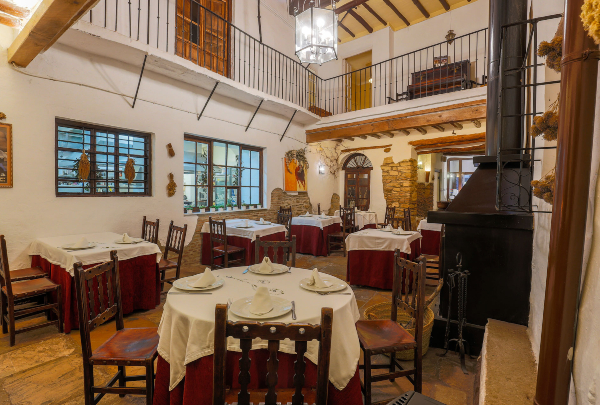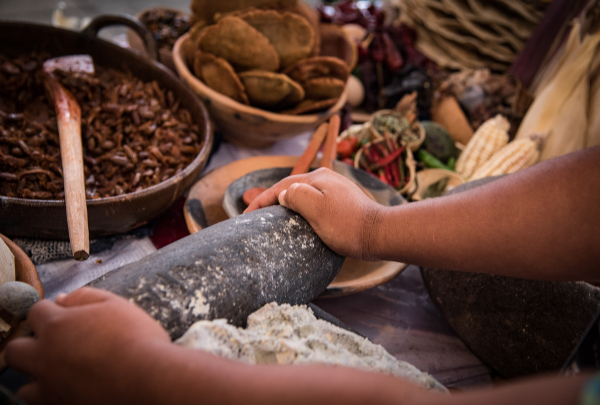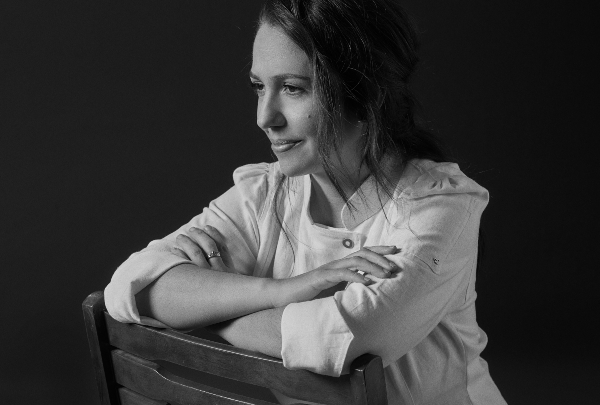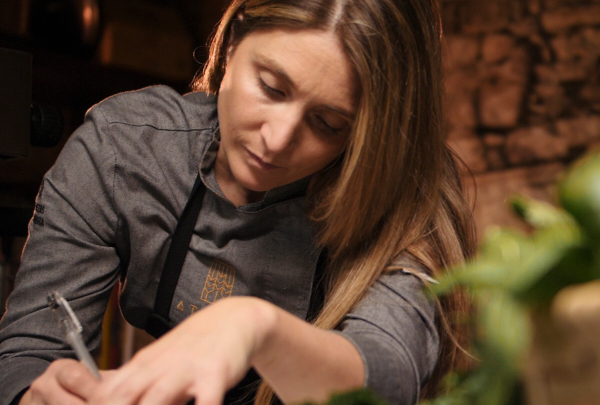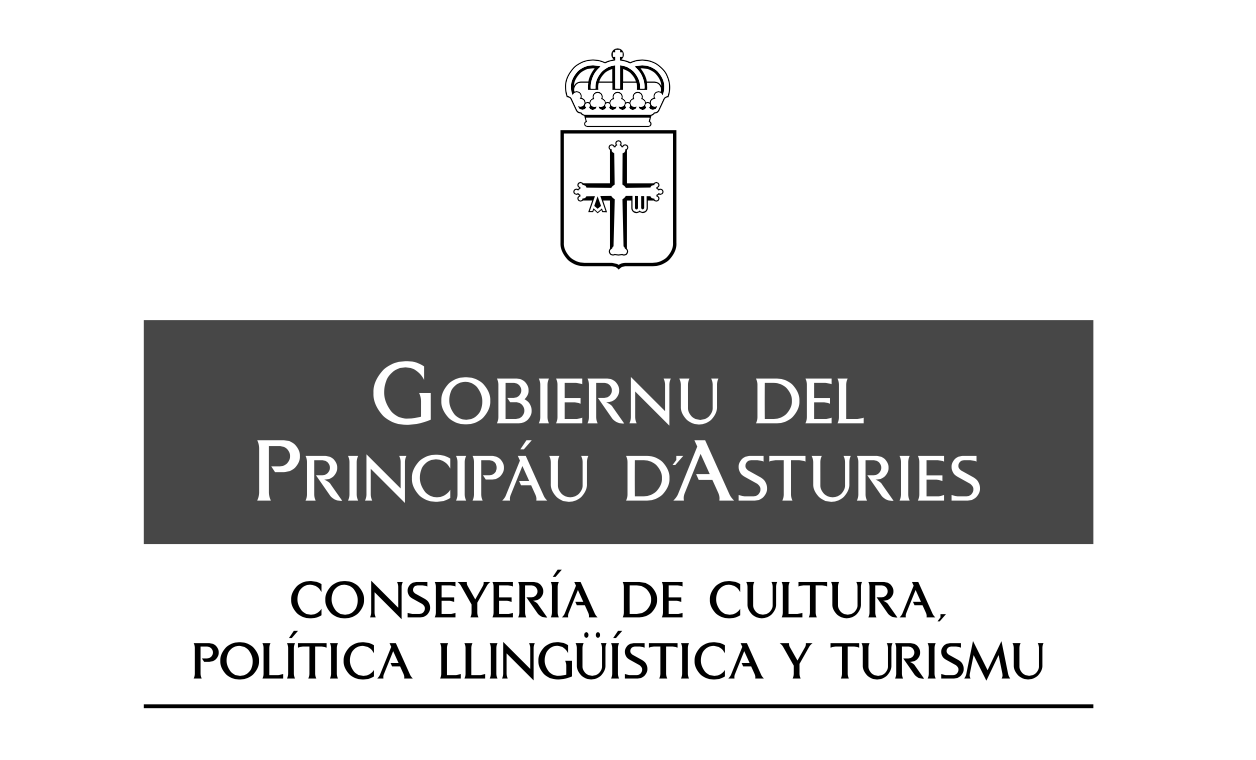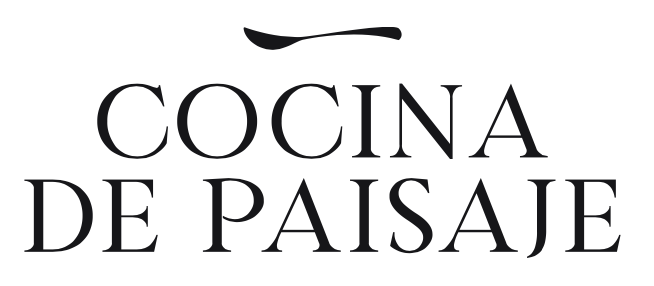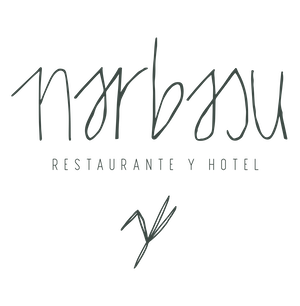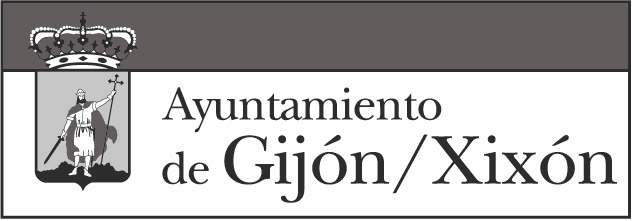Interview
“The essence of traditional cooking and state-of-the-art cuisine is not incompatible”
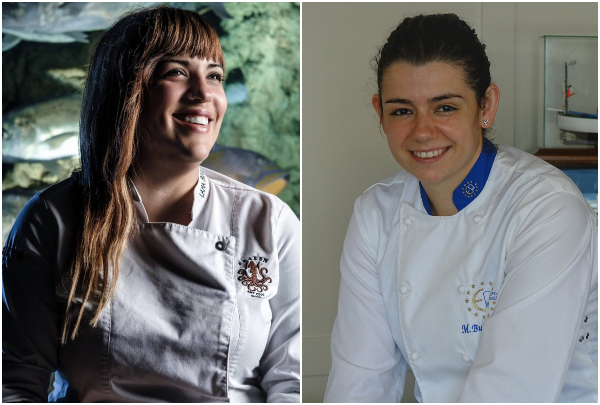
Two apparently parallel cookery models converging to the benefit of Asturias.
The Principality's gastronomic future is moving between tradition and innovation, but it has already learned the basics. We have brought together two of its present and future mainstays to gain an insight into the whys and wherefores. Two gastronomic perspectives, with respect and with a feminine outlook - although their conceptions are different, they speak the same language - COOKERY language. With capital letters, that's how they wanted it - Lara Roguez (Kraken Artfood, Gijón) and María Busta Rosales (Casa Eutimio, Lastres). We're getting to know them a little better before their converging opinions conquer FéminAs.
One of them is president of the Principality of Asturias' Association of Female Chefs; the other is a "guisandera" stewmistress. One of them learned to cook in Wales; the other learned at home. One of them was nominated for Revelation Chef at Madrid Fusión; the other won the national Prize for Best "Cachopo" veal, ham and cheese pastie. One was born in 1984; the other was born in 1987. Both of them convey respect and love for their regions and their ecosystems. Both of them work with local produce, and with the market on a daily basis. They both know about the other, but have never actually sized each other up before. FéminAs will correct this.
How would you define yourself? You, and your business.
Lara Roguez: I'm from Gijón. I'm the youngest of four sisters, and I took a late decision, but I gave up everything to work as a chef, something I'd always dreamed of. I closed down a business, and went to Wales to start off. I studied at Bridgend College, and worked at some of the best restaurants in the south of the country. I came back to join Esther and Nacho Manzano's team, worked for a few hotels, and finally I headed up the catering project at the Aquarium Biopark in Gijón, which I started from scratch and made it a very personal, ambitious, special project. Seeking a pure sea taste, taking a responsible attitude to our surroundings, using local km 0 produce caught in a responsible process. Kraken's food is mainly for fun and enjoyment, and the end products are extremely visual, colourful and different. We want to take all that taste of the sea to diners, seeking out the best fish and seafood every morning, top quality and always line-caught, or using other responsible fishing methods. Using microalgae or eco-friendly plankton produced in Gijón.
María Busta Rosales: I'm the youngest of a family of seven. I'm continuing the family business with my brother Rafa, where we try to combine culinary evolution in terms of points, techniques and origins of produce with the traditional character of my parents' trajectory. The point of convergence between both of these is the greatest respect for what they are, and what we are. The food we cook at the restaurant has strong local links. In other words: our range is mapped out by the local produce that arrives every day. Normally we take care to work with it in a traditional manner, but that doesn't mean we won't use other formats to keep the offer up to date. Whenever we can, we look for local products, slow food and eco.
Do you know each other? What is your opinion of her kind of cuisine?
Roguez: Not personally, but I have heard of her work running Casa Eutimio. It's one of those places I'm still planning a getaway to! I think it's a wonderful location, a lovely house in one of the most beautiful areas of Asturias. One of those places that keeps tradition alive, adapting to what the new age wants, without forsaking the roots we all ought to maintain in our kitchen, at least. I think it's one of those places that bestows quality on our region's gastronomy.
Rosales: I know of her, but we've never had a face-to-face conversation before. A visit to her restaurant is on my to-do list, but what with maternity, catering work (which leads many of us to rest on the same day off) and the pandemic, I haven't been able to yet. Lara runs her business at an enviable location, and she's right to link her cuisine to all of her surroundings. You can see the sensitivity and know-how in her food. The essence of traditional cooking and state-of-the-art cuisine has never been incompatible. Both of them are cookery, inspiration for the passion of all of us working in this sector. We can move forward together, provided both disciplines are carried through with respect for the product, the process and the outcome.
If I told you tomorrow you have to cook at her restaurant, would you be able to do that?
Roguez: Even if I leave my mark on the food, that kind of traditional cuisine is never abandoned, and it can be found in a large number of recipes, but it's just used in a different way. My sampling menu has an oyster with glazed "pitu caleya" Asturias chicken. We make the base for the chicken in the traditional way, poaching the vegetable base for a long time, and cooking it for hours. Having said that, if I try to make stews or more traditional recipes, I'm sure María would have a few things to say about it. I'm quite positive about that!
Rosales: Of course. When all's said and done, we're professional chefs. What I'm sure of is that I wouldn't get the same results, even if she gave me her recipes. Without realising it, I'd add in my experiences and sensitivity, which would be different to hers. We've carried a different baggage, we're different too, and our cooking reflects that.
What do you understand by tradition?
Roguez: Our grandmothers' stews and recipes, cooked patiently, with no rush, using high-quality local produce, with fewer imports and preservatives.
Rosales: Tradition means the roots and culture of a certain location, which moves us to try to maintain ingredients and recipes the ingredients form part of, which are now disappearing in some places, unfortunately.
What do you understand by state-of-the-art?
Roguez: Innovation, fusion. Inventing is more and more difficult, but what you can do is seek out new flavours and new techniques for recipes you can have fun discovering.
Rosales: There's a certain amount of obliqueness between the two terms, which is more sensitive than we traditionally imagine. Traditional fare along with less conventional combinations ... obviously choice of technique and due care with all the components of a meal enrich the food and take it to another level, up to "experience" status.
Who are your culinary references?
Roguez: Alexandre Couillon and Angel León.
Rosales: I was enormously lucky in that initially I was taken in and treated most affectionately by Luis Alberto and María Jesús at Casa Fermin (Oviedo). After that I immersed myself in books, videos etc., and I began to try things, and here I am. Obviously my parents - my mother, with her stews, and my father, cooking fish - are the most essential factors in my career.
Would you prefer to eat at El Llar de Viri or at Casa Marcial?
Roguez: They both have legendary styles of cuisine, but because I worked for Nacho, his restaurant would definitely be my first option.
Rosales: A tough decision. Neither of them could exist without the other. I wouldn't reject either of them.
Complete this sentence:
"Fabada", scorpion fish cake or "pote" stew are recipes that ...
Roguez: Even though they're classic Asturian recipes, we can update and modernise them, touching them up a little without forsaking their roots.
Rosales: They represent the huge heterogeneity of Asturias.
When I look at the menu in a restaurant in Asturias, or a Spanish restaurant, and I read "tuna tataki" or "cheesecake" ...
Roguez: These are trends, after all, even though they may seem to be never-ending. I don't see the need, by the way, to write "cheesecake" in English, instead of "tarta de queso" ...
Rosales: Calling things by their name isn't so important if they're related to local produce. If they're really faithful to their origins and techniques, I think that's fine.
The future of cooking depends on ...
Roguez: All of us being aware of the way things are, and that we have to start being more responsible with what we eat, and what we buy for our restaurants.
Rosales: Believing in what you do, and doing it with all the love we feel for our profession.

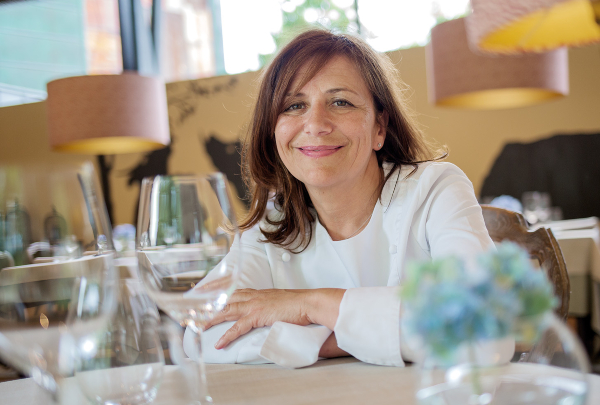
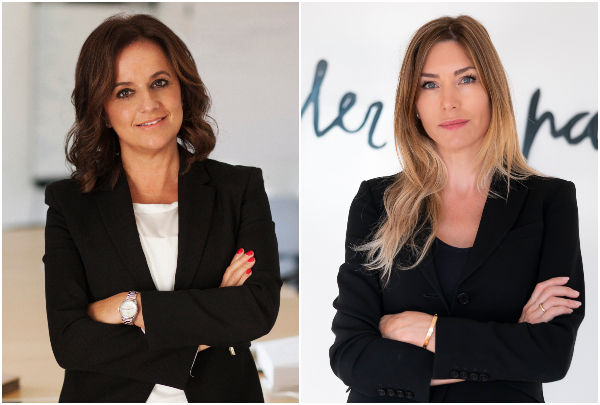
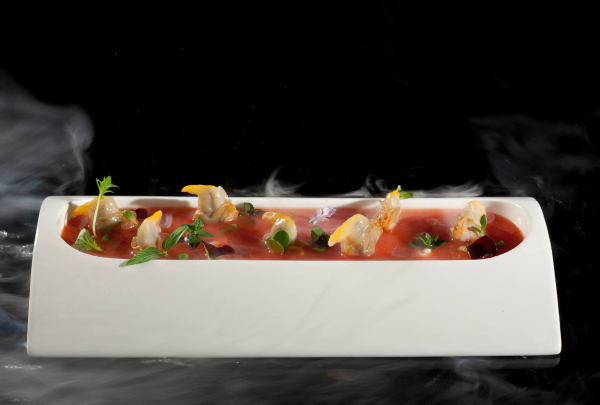
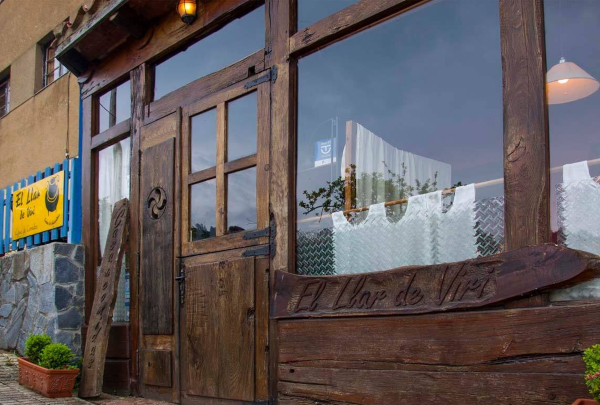
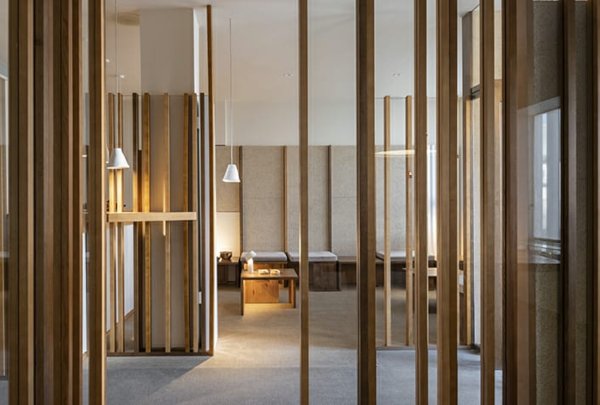
.jpg)
